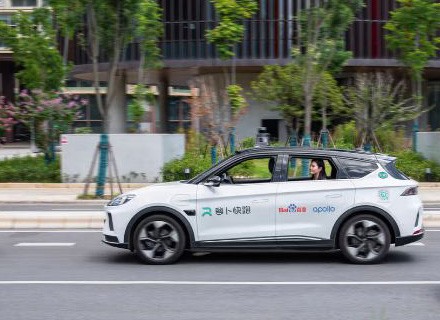The fascinating Robo taxi service has been operating in the park for more than a year to give visitors a taste of this cutting-edge mode of transportation. It is offered by Chinese artificial intelligence company Baidu’s autonomous driving mobility platform Apollo Go.
The commercial operation of Robo taxis is expanding beyond semi-closed places like Shougang Park and into more open roads thanks to ongoing technological advancement and legislative assistance, as the promotion of Robo taxis offers enormous market potential in China.
Greater advancements will be made by Apollo Go’s Robo taxis in Wuhan and a neighborhood in the Chongqing Municipality. In contrast to trials of Robo taxi services in some other cities, which need a safety operator to sit in the front passenger seat in case of emergency, these two locations announced recently that qualified operators are permitted to carry out the commercial operation of fully autonomous Robo taxis.
Shenzhen, China’s technological capital, has designated regions and road segments where completely autonomous vehicles without a manual driving option and accompanying gadgets are permitted to operate starting this month.
According to Ji Xuehong, director of the automobile industry innovation research center at the North China University of Technology, the expansion of Robo taxis’ commercial use can aid in the increased public acceptance and acknowledgment of autonomous driving as a technology.
The strong actions taken by these cities followed a number of high-level plans to support the use of autonomous vehicles for commercial purposes in China.
The country’s intelligent automotive development strategy outlines a plan for accelerating high-level autonomous driving. In some cities, pilot programs for the use of highly accurate maps in intelligent linked vehicles will be introduced to support autonomous driving.
The government has given autonomous driving safety a lot of attention in addition to a nurturing hand. In a draught report presented recently, the country’s transport ministry emphasized that “safety should come first” in the management of autonomous vehicles.
According to CITIC Securities, the market for Robo taxis is expected to reach 3.2 trillion yuan (approximately 473.3 billion dollars) by 2040, indicating that the technology is set to advance quickly.
Image Credits: Baidu

